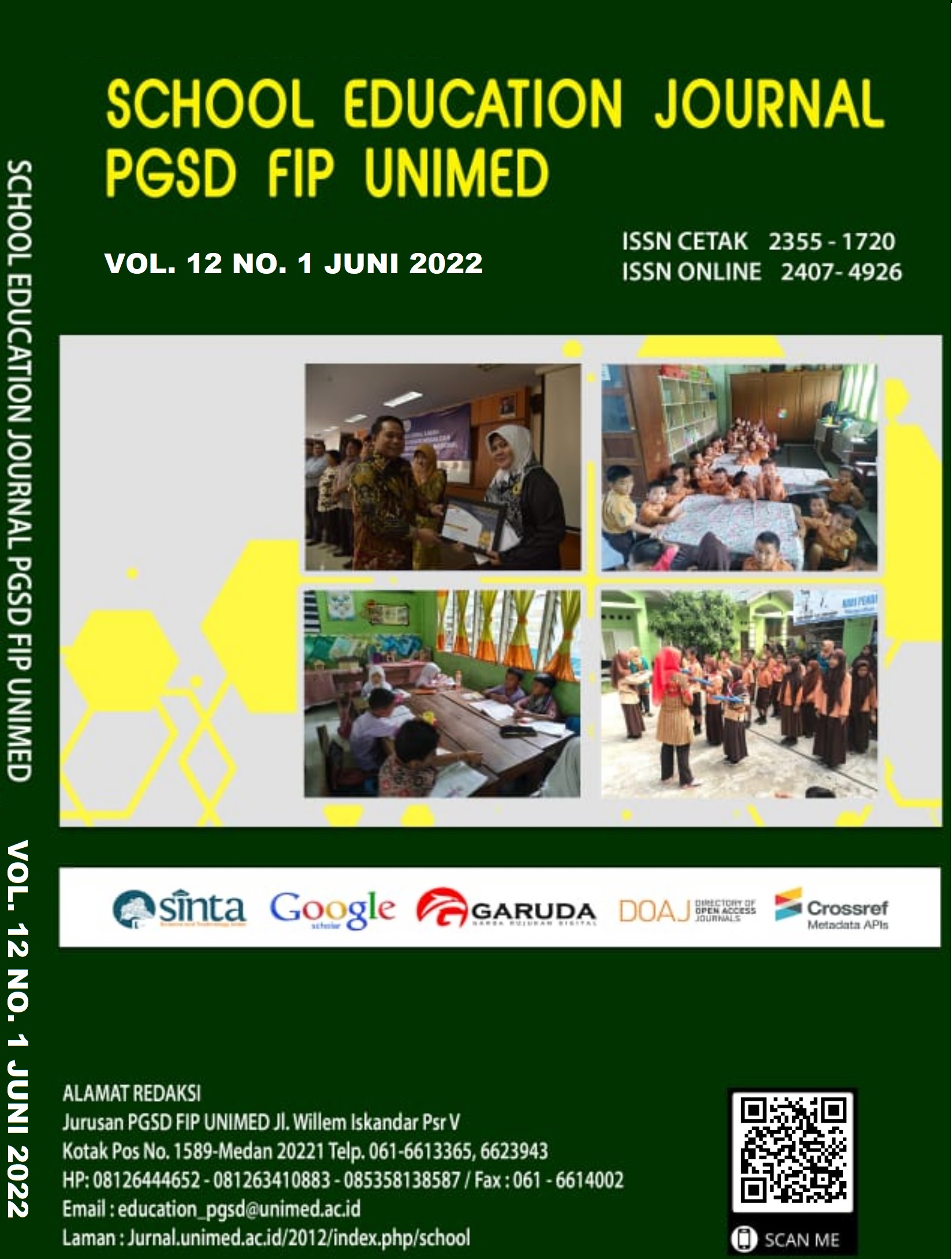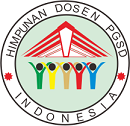METODE NORMATIVE SURVEY DALAM ANALISA DAMPAK PENERAPAN KEGIATAN MBKM
DOI:
https://doi.org/10.24114/sejpgsd.v12i1.32895Keywords:
Independent Learning Independent Campus (MBKM), Descriptive Survey (Normative Survey Method), Curriculum.Abstract
The Independent Campus Learning Program (MBKM) is a government program in an effort to provide opportunities for students from both public and private universities to study outside their study program. The opportunity is also wide open for students. This research is an analytical study of the implementation of MBKM competition activities in the Petroleum Engineering Study Program, FTKE Trisakti University. This study is supported by data obtained from the descriptive survey method (Normative Survey Method) of the entire academic community which includes the heads of the Faculties and Study Programs, lecturers, education staff and students as respondents. This study is intended to evaluate the impact of MBKM-based learning on lecturers and students, the availability and implementation of MBKM-based curriculum in Petroleum Engineering Study Program, Trisakti University and the level of satisfaction of lecturers, students and stakeholders on the availability of facilities and infrastructure to support the implementation of MBKM. The survey results show that MBKM activities have had a positive impact. Some of the challenges faced, among others, were the difficulty in getting partners to provide internship programs, technical constraints due to the pandemic, and program socialization that had not yet touched the entire academic community. More intensive efforts from Faculties and Study Programs to build cooperation with partners and update socialization methods are expected to improve the implementation of MBKM.References
Baharuddin, M. R. (2021). Adaptasi Kurikulum Merdeka Belajar Kampus Merdeka (Fokus: Model MBKM Program Studi). Jurnal Studi Guru Dan Pembelajaran, 4(1), 195“205.
Clarke, M. (2018). Rethinking graduate employability: The role of capital, individual attributes and context. Studies in Higher Education, 43(11), 1923“1937.
Connolly, A. J., & Reinicke, B. (2017). How to Teach Emotional Intelligence Skills. Information Systems Education Journal, 15(4).
Fuadi, T. M., & Aswita, D. (2021). Merdeka Belajar Kampus Merdeka (MBKM): Bagaimana Penerapan dan Kedala Yang Dihadapi oleh Perguruan Tinggi Swasta di Aceh. Jurnal Dedikasi Pendidikan, 5(2), 603“614.
Lao, H. A., & Hendrik, Y. Y. C. (2020). Implementasi Kebijakan Kemerdekaan Belajar Dalam Proses Pembelajaran Di Kampus Iakn Kupang-NTT. Jurnal Dedikasi Pendidikan, 4(2), 201“210.
Lhutfi, I., & Mardiani, R. (2020). Merdeka Belajar-Kampus Merdeka Policy: How Does It Affect the Sustainability on Accounting Education in Indonesia?. Dinamika Pendidikan, 15(2), 243“253.
Nanggala, A., & Suryadi, K. (2020). Analisis Konsep Kampus Merdeka dalam Perspektif Pendidikan Kewarganegaraan. Jurnal Global Citizen: Jurnal Ilmiah Kajian Pendidikan Kewarganegaraan, 9(2), 10“23.
Purwanti, E. (2021). Preparing the Implementation of Merdeka Belajar“Kampus Merdeka Policy in Higher Education Institutions. In 4th International Conference on Sustainable Innovation 2020“Social, Humanity, and Education (ICoSIHESS 2020), 384“391.
Puspitasari, R., & Nugroho, R. (2021). Implementasi Kebijakan Merdeka Belajar Kampus Merdeka Fisip UPN Veteran Jawa Timur. Dinamika Governance: Jurnal Ilmu Administrasi Negara, 11(2).
Yusuf, M., & Arfiansyah, W. (2021). Konsep œMerdeka Belajar dalam Pandangan Filsafat Konstruktivisme. AL-MURABBI: Jurnal Studi Kependidikan Dan Keislaman, 7(2), 120“133.
Published
Issue
Section
License
Authors whose manuscripts are approved are approved as follows:
- The publication rights for all journal manuscript materials published/published on the SEJ (School Education Journal) E-Journal site are held by the editorial board with the author's knowledge (moral rights remain with the manuscript authors).
- The formal legal requirements for accessing this electronic digital journal article are subject to the terms of the Creative Commons Attribution-ShareAlike (CC BY-SA 4.0) license, which means that E-Journal SEJ (School Education Journal) has the right to store, transfer media/format, manage in the form of a database, maintain, and publish articles without asking permission from the author as long as the author's name remains as the copyright owner.
- Manuscripts published/published electronically are open access for educational, research, and library purposes.













